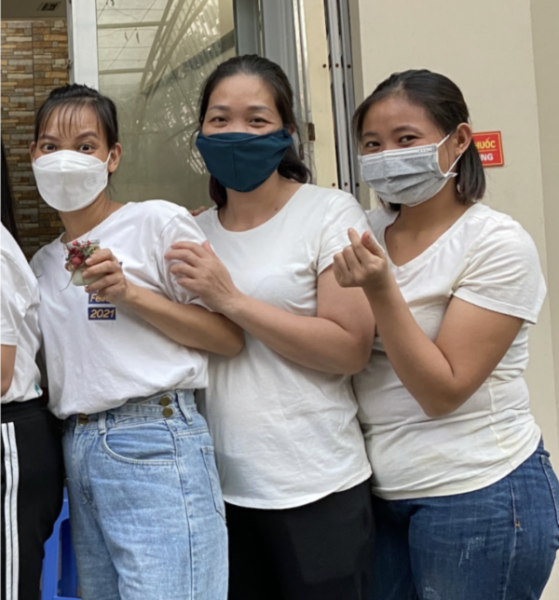I think in theory we all want to be ethical consumers, but in practice that task can sometimes seem daunting or even impossible. That’s why I’ve written this post – to debunk common myths about ethical consumption and offer some useful tips on how to become a conscious consumer.
Myth 1: Becoming a conscious consumer is too expensive.
My response to this myth is, “sometimes.” I’ll acknowledge that as a college student, lots of ethical fashion items were often out of my budget upon first glance. However, I’ve learned to shift my thought process regarding pricing – rather than just looking at the price per item, I’ve started thinking about the “price per wear” of any garment I buy. By investing in a product that costs a bit more but lasts a lot longer, I’ll likely end up saving money in the long run. I credit Fashion for Freedom supporter Rebecca Ballard for first bringing this idea to my attention in this article she wrote for the Brooklyn Fashion + Design Accelerator. Another point to note is that practicing conscious consumerism includes reusing, recycling, upcycling! You can choose to shop at your local thrift stores, where often times you can find higher quality items at fast fashion prices. You can also learn to make the clothes you already own last longer by learning to repair them.
Myth 2: Shopping ethically is inconvenient.
Sure, there may not be an ethical store on every corner (yet!) where you can easily run in and quickly grab what you need, but thanks to the internet, you can order pretty much anything from the comfort of your own home. Many ethical clothing brands have great online storefronts where you can easily find whatever you’re looking for. I also have become a huge fan of this new Chrome extension, DoneGood, that helps me shop ethically by giving me ethical alternatives as I search online for various things. Additionally, Free the Slaves and DoneGood just launched a “Slavery-Free Brand Directory” that you should totally check out!
Myth 3: One person cannot really make an impact.
While it is true one person alone does not always have a ton of influence, together we can make a difference. Even if it may not seem like it, there are people all around the world making an individual choice to shop more ethically, which is having an impact on the industry at large. Just look at the crazy huge impact of Fashion Revolution – in the past five years, what started as an initiative run by a handful of people has become a global campaign engaging thousands of people in the fight for a more ethical fashion industry.
Myth 4: It’s all or nothing.
I completely understand how daunting a task it can seem to transition into conscious consumerism, but I want to remind us all that little steps forward can create positive change. As a college student myself, I definitely don’t have the means to go out and buy a completely new wardrobe made up entirely of ethical fashion garments (nor should I — that’s wasteful!). Instead, my transition into conscious consumerism has been a gradual process of replacing my old worn out fast fashion purchases with better quality, longer lasting, and sustainable products on an as needed basis. Because I cannot afford to buy a lot of items that might seem appealing at a given moment, I try to think more carefully about the way I shop and consider whether or not what I am buying is really something I need. This process forces me to reduce the amount I consume to begin with, which is one of the most basic ways we can consume in a more responsible way.
At the end of the day, it is all about the small changes we can make over a long period of time that will create the greatest impact. I’m a big fan of this Margaret Mead quote, and I think it’s particularly applicable here: “Never doubt that a small group of thoughtful, committed citizens can change the world; indeed, it’s the only thing that ever has.”
Katie is a Fashion for Freedom intern and recent graduate from American University, who just completed her bachelor’s in international relations with a focus on gender, race, identity and culture. She also holds a minor in art history. In her free time Katie loves traveling, drawing and painting.




